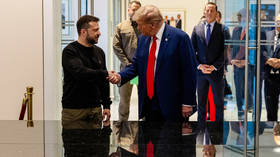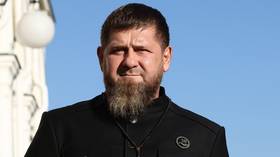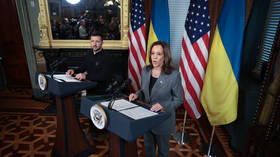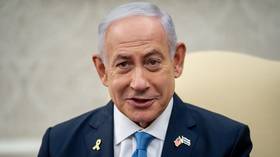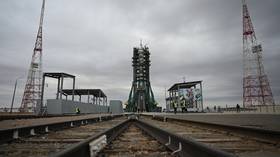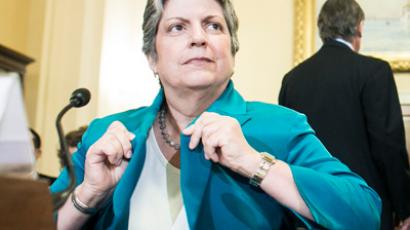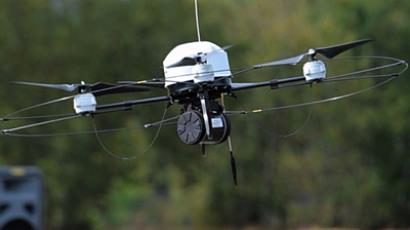Feds: No armed drones in US, but forget about privacy
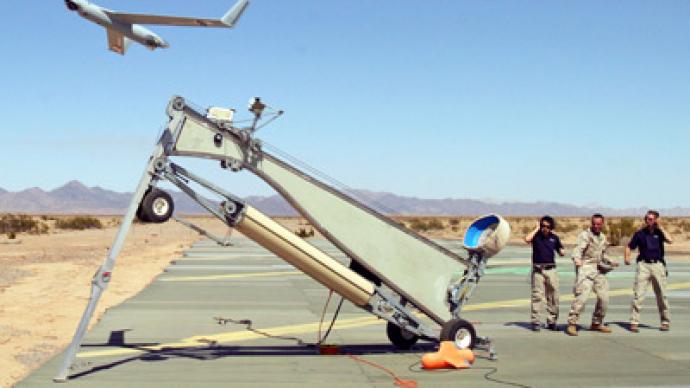
The Federal Aviation Administration official who heads the agency’s drone division says the FAA has no interest in letting weaponized unmanned vehicles into US airspace anytime soon. But don’t expect them to weigh in on privacy issues, either.
Jim Williams, the chief of the FAA’s Unmanned Aircraft Systems (UAS) Integration Office, spoke at a drone convention outside of Washington, DC this week and reassured his audience that the missile-equipped Predator and Reaper drones that have become a hallmark of America’s foreign wars won’t be allowed stateside anytime soon.According to the Washington Times, Williams said existing rules already prohibit aircraft from using weapons, and speaking on behalf of the agency said, “[W]e don’t have any plans of changing [those rules] for unmanned aircraft.”America’s foreign drone program has accelerated drastically in recent years under the administration of President Barack Obama, with over 50 people, many unidentified, reportedly executed abroad by the aircraft in only the first two months of 2013. But while the use of those aircraft overseas to launch bloody strikes is out of the FAA’s jurisdiction, Mr. Williams reassured some this week that Americans have no need to fear lethal US drones in domestic airspace.“We currently have rules in the books that deal with releasing anything from an aircraft, period. Those rules are in place and that would prohibit weapons from being installed on a civil aircraft,” Mr. Williams told the crowd in Tysons Corner, Virginia, where people from across the world have gathered this week to attend an event sponsored by the Association for Unmanned Vehicle Systems International.The merits of domestic drone use have become a renewed topic of debate recently, thanks in part to the leaking of official white papers that discuss the White House’s policies regarding the use of those aircraft to execute US citizens abroad who are suspected of terrorism. The United States has used unmanned aerial vehicles to strike insurgents overseas for roughly a decade now, but only with the recent unearthing of the white papers has drone debate taken center stage within the US. But even while Mr. William’s statement may be enough reassurance for some, others fear there is still a likelihood missiles could be launched from American airspace. According to the Times, Williams deferred a question regarding weaponized drones above the US/Mexico border, saying, “Border patrol is the responsibility of [the U.S. Customs and Border Protection agency]. I’ll let them answer that question.” Earlier this week, KBPS News reported that the US CBP has an air patrol fleet that includes eight Predator B and two Guardian drones, which can conduct missions from Florida to California.But also up for discussion as of late have been the Constitutional provisions that could prohibit the use of remotely-controlled aircraft to conduct surveillance missions domestically. The FAA has received applications from at least 80 organizations across the United States asking for permission to fly drones, and US Department of Homeland Security Sec. Janet Napolitano has endorsed the idea of using the aircraft within the country’s border for search-and-rescue missions as well as other law enforcement purposes. Civil liberty advocates and constitutional rights experts have condemned domestic drones, however, and have warned that the use of camera-equipped aircraft is on par with forcing Americans to endure sweeping dragnet surveillance. Speaking in Virginia this week, though, Mr. Williams said that the FAA has its hands tied when it comes to addressing those concerns.“The FAA has no authority to make rules or enforce any rules relative to privacy,” he said. “We can ask [the industry] to take into consideration the privacy issue. … There aren’t any rules to date on that.”But as Spencer Ackerman, a reporter for Wired’s Danger Room, warns, as the FAA is pressured by law enforcement and the government to adopt formal drone rules, privacy is unlikely to be taken into consideration at all. “The FAA’s mandate is to protect the safety of air travel — not the privacy rights of Americans,” he writes. Of course, there is good reason the FAA is only interesting in advancing, not halting, their agenda: Ackerman also reports that Williams told the drone convention crowd that domestic UAVs could generate "$90 billion in economic activity" for the US during the next few years.



